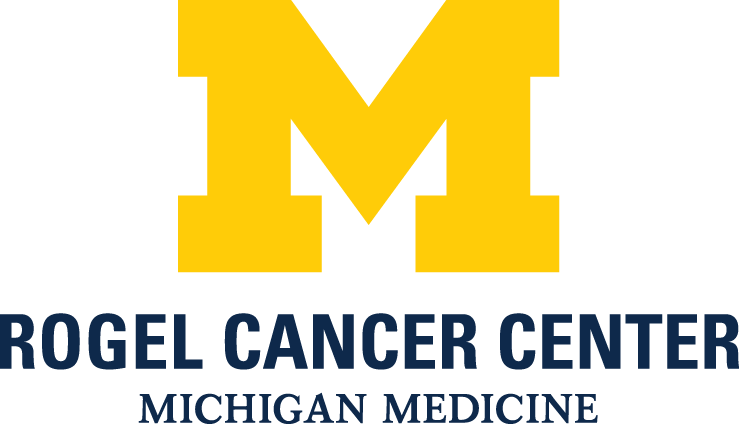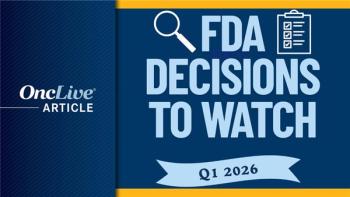
Identifying Genetic Variants, Matching With Targeted Therapies Serve as Next Great Challenge With Germline Testing in Oncology

Goutham Narla, MD, PhD, discusses the revolution of genetic testing and how it has led to more accurate and widespread assays for patients with cancer.
The revolution of genetic testing has led to more accurate and widespread assays for patients with cancer; however, as more genetic variants are identified, it has become a greater challenge to determine the optimal treatment for an individual patient, according to Goutham Narla, MD, PhD.
“As we sequence more genes, we will have more information, which is a good thing,” said Narla. “Of course, we will also find more variants that, at this time, we don't know whether they're pathogenic or benign. They get lumped into the uncertain category, which creates uncertainty for patients and for providers, as well.”
In an interview with OncLive® during the 2020 Institutional Perspectives in Cancer (IPC) webinar on Precision Medicine, Narla, an associate professor in the Department of Medicine; chief of the Division of Genetic Medicine, Department of Medicine; and associate director of the Medical Scientist Training Program, University of Michigan, further discussed the utility of genomic testing and updates in next generation sequencing (NGS).
OncLive®: Could you discuss the key advances in cancer genetics? What are some of the mechanisms that have driven its development?
Narla: A couple of major advancements we've seen in cancer genetics is the identification of additional disease-causing variants. It used to be when I first trained as a medical geneticist, we really only knew about BRCA1/2 and some of the mismatch repair genes. Now, we know about other genes, including PALB2, and other members and genes in that family. That has expanded the testing opportunities for our patients.
The other aspect that has been very exciting is now some of these gene variants are predictive of response to therapies. We have therapies that can be specifically used and work for patients who harbor some of these germline variants. That has really changed the way in which we have treated patients who carry these variants.
What are some of the recent developments in NGS?
Previously, we were doing single-gene testing, oftentimes by Sanger sequencing. Now, we can do large panels of genes depending upon the company and the panel; these comprise anywhere from 60 to 70 genes—in some cases, several thousand genes. It has allowed us to collect vast amounts of sequencing information. Some of it will not be directly actionable now, but it still fuels research opportunities for us at major academic medical centers, and when more knowledge [is] gained, we go back to some of those sequencing results to see if, in fact, there was something that is now actionable based upon new knowledge.
How are we using this information to develop targeting strategies?
A lot of the approaches that we are using now may not involve the directly targeting the defective gene or protein, but they are leveraging knowledge about how that defective gene or protein causes activation of targetable pathways. For example, when it comes to BRCA1 loss, that creates a unique opportunity to use a PARP inhibitor in a synthetic lethal interaction, where those cells become highly dependent upon that enzyme. Then, you can inhibit with small molecules [or perhaps] approved PARP inhibitors, such as olaparib (Lynparza), and others for which there are now [a number of approved drugs that can target] a range of BRCA-deficient metastatic tumors.
How else has genomic testing evolved?
The evolution has been both in the number of individuals that we test, as well as how many genes we test. [For example, we used to] test families in which there are numbers of individuals who have cancer and we had a strong pretest probability that they would have a germline variant. Now, in fact, every patient with metastatic ovarian cancer, regardless of family history, gets tested. This is because we have PARP inhibitors for them. It not only has implications for their family but it also has implications for their treatment choices.
What guidelines have been helpful to your practice as it relates to genomic testing?
There are a number of organizations from the American Cancer Society to National Cancer Institute and the National Comprehensive Cancer Network (NCCN) that have very robust guidelines on who to test. There is also a little bit of subjectivity in making an appraisal with a genetics professional, meaning a genetic counselor or a medical geneticist, because not every family will fit the structure or will even know the entirety of their family history. There is some nuance to this, but there are definitely very established guidelines that exist and that we use when making these types of decisions.
However, the NCCN guidelines are very good and are used by [our institution. Then we apply our own nuances when we see the patient on a case by case basis. But, [in terms of] informing who should be tested and who should not, and which individual in the family should be [tested], the NCCN guidelines are a very good [resource].
What challenges could be addressed with future research?
I would like to see more of an effort to share data across all institutions and testing companies to reclassify these variants. I would like to see more basic science and translational science around what we call variant reclassification, so that we can really make definitive calls about the sequence changes that we see. The more genes we sequence, the more variants we find, and on larger panels, [we can see these uncertain variants in up to] 20% of patients. We're finding something in a gene, but we don't know whether it's good or bad for the patient.
Are there any new capabilities or technologies emerging that you find particularly exciting?
From a technology perspective, the last 10 years in sequencing has been a revolution; the cost of sequencing has come down and the accuracy has gone up. I'm not sure that we're going to see that much more of a revolution in the sequencing technology; it will be more efficient and more cost effective. We're [going to see] the identification of new genes associated with disease [and will therefore] it will be in the variant reclassification space.
What testing or sequencing studies are of particular interest?
One type of study that has read-out recently comprise the effectiveness of immunotherapy in patients who have mismatch repair deficient tumors. That has been really game-changing for those patients. The other major study is the use of PARP inhibitors in BRCA-mutant tumors—originally in the second- and third-line settings of ovarian cancer. [PARP inhibitors] have now moved to maintenance [therapy], pancreatic cancer, prostate cancer, and others. That has changed the management of patients with BRCA-positive tumors.



































